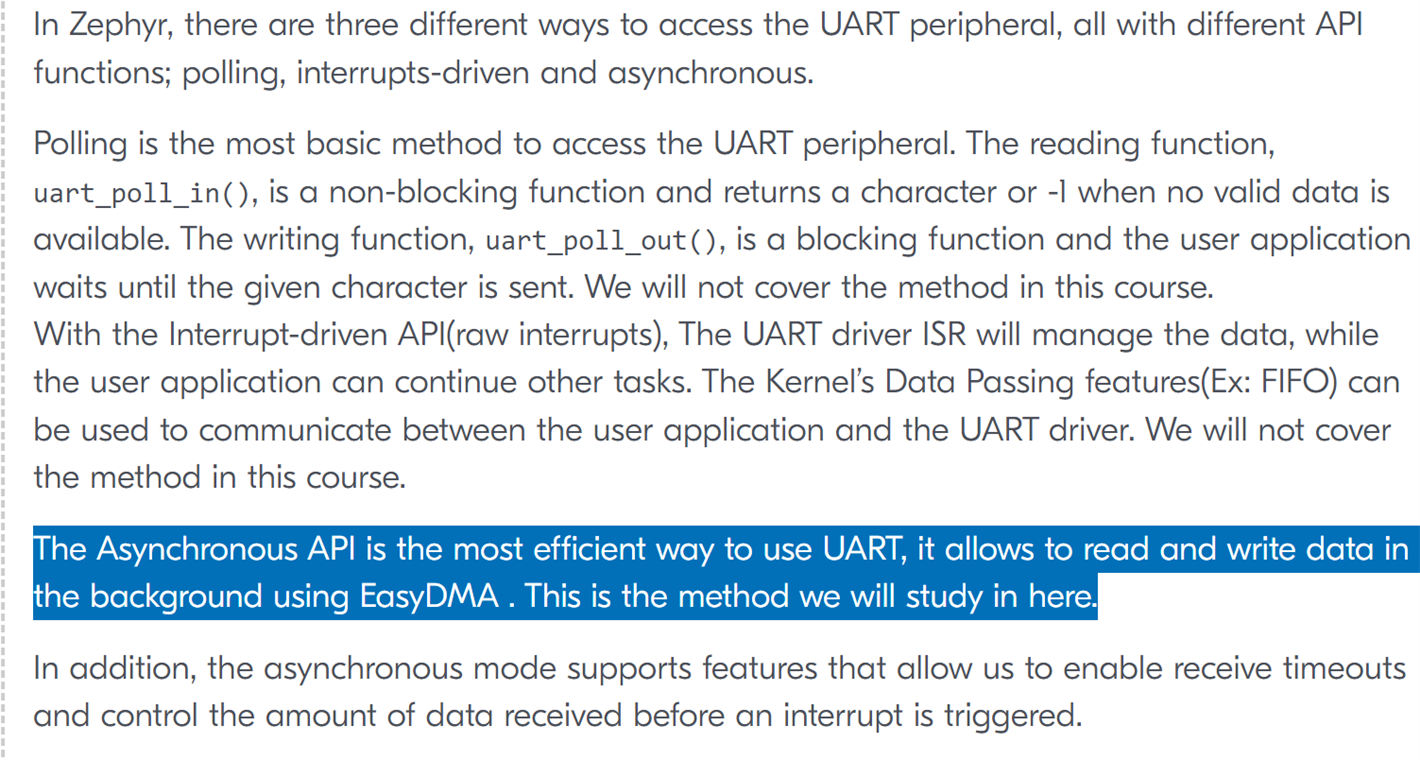Hello Nordic Team,
The sample program BLE HCI UART implemented using interrupt API, which has limitation of 1 byte Rx per interrupt.
per document, Asynchronous API is recommend for UART,

We are interested in Asynchronous API hoping which will improve the throughput.
- Is there any specific reason BLE HCI UART program implemented using interrupt API?
- Do you have BLE HCI UART program based on Asynchronous API(uses eDMA)?
- If not available, is it something Nordic can help to implement?
Regards,
Alaganraj


